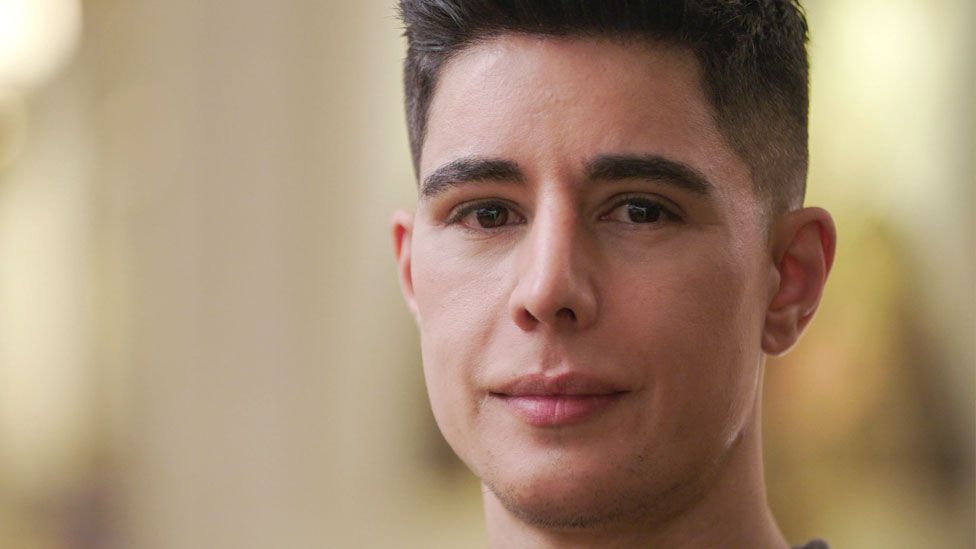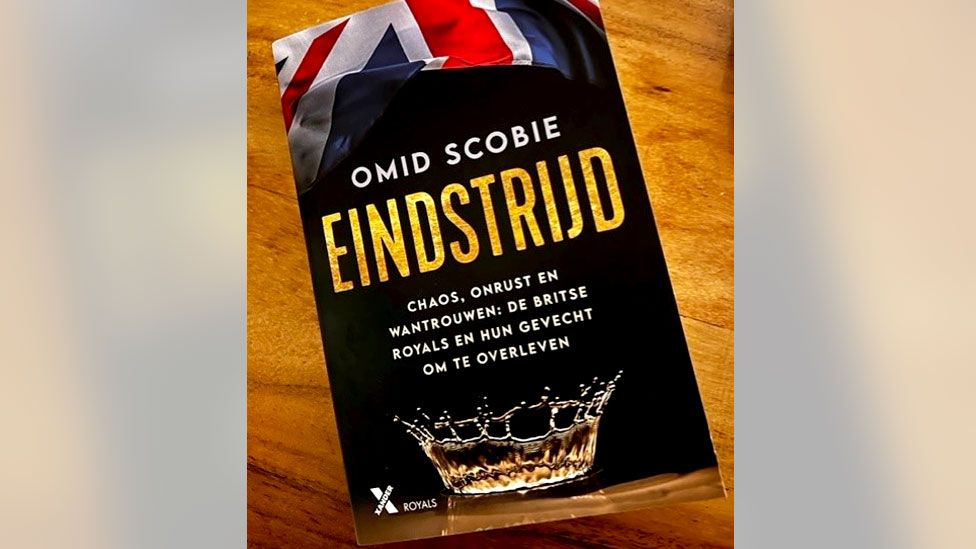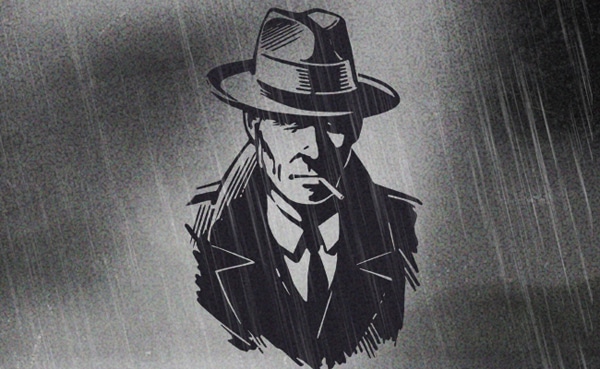
This year, 650 new words were added to the Merriam-Webster dictionary, including “jorts,” “grammable” and “rizz.”
If you have a teenager, you know what “rizz” means. (And if you don’t, it means “romantic appeal or charisma,” according to the dictionary.)
But what word captures 2023? It’s been a year in which artificial intelligence exploded into the mainstream, union workers across industries went on strike, and two female musicians – Taylor Swift and Beyoncé – bolstered an entire economy.
According to Merriam-Webster, the word of 2023 is “authentic.”
"Although clearly a desirable quality, ‘authentic’ is hard to define and subject to debate, two reasons it sends many people to the dictionary," the company said in its announcement of the word of the year.
Merriam-Webster’s editor at large, Peter Sokolowski, joined Alison Stewart on a recent episode of “All of It” to discuss how the dictionary chose the word of the year, what it tells us about this moment, and some words that quite didn't make the cut.
During their conversation, New Yorkers called in with some of their picks for the word that best describes 2023.
You can hear their whole discussion here; an edited version is below.
Stewart: Why do you think “authentic” is a difficult concept to define?
Sokolowski: Abstract ideas are harder to define than concrete words. A definition for chair or table is interesting but when you're talking about ideas, it gets a little bit more complicated.
However, the two definitions that count for “authentic” are refreshingly simple. The first sense is “not false or imitation.” And sense two is: “true to one's own personality, spirit, or character.”
Nice, short definitions for a word that really encapsulates a big idea.
How do you select the word of the year?
It comes from when we first put the dictionary online in 1996. For the first time, we could see which words sent people to the dictionary.
We could see which words were being looked up and of course, we could also see when they were being looked up.
Initially, we saw a list of static words. It looked like an SAT list – words like “integrity” and “paradigm,” “ubiquitous,” “conundrum” and even “authentic.” Words like “democracy” and “fascism” were also looked up every day regardless of the news.
Then something happened and it changed the way we view our data. In 1997, the first news event that was widely shared online was the death of Princess Diana, and we saw the lookups change dramatically.
We saw initially the word “paparazzi,” which was, of course, associated with her death, and it's a hard word to spell. Are there two R's? Are there two Z's?
The second-most-looked-up word was “princess,” and that shows us two different models of what sends people to the dictionary.
The word “princess” is, obviously, a common word. It's not particularly hard to spell or pronounce and yet I think people were seeking a lot of information about that word that I would categorize as encyclopedic.
Wondering if there are two R's in paparazzi … that's a lexical question. That's about the mechanics of the word. If you want to know about princess … Are you born a princess? Does a princess automatically become a queen? Is a princess higher than a duchess?
Those are what I would call encyclopedic questions. In other words, they're about the use of the word in the culture and not the word itself.
I think that's what sent people to the dictionary in the case of “princess.”
We have these two kinds of models, and “authentic” is really the former. It simply rose to the top of our data.
We have 100 million page views per month at our website. Although this word is not associated with a single story in the way that the word “vaccine” was, for example, in 2021, we do see that several stories connected to it.
ChatGPT, AI, I have to imagine.
Absolutely. AI's been in the news every single week of 2023. It's been a huge story and, as you know, [Nov. 30] was the anniversary of the launch of ChatGPT.
The number of think pieces and the shock to the academic world and the ideas about plagiarism and copyright — and to say nothing of the concerns of AI replacing writers or actors or their images. This has been a big story, and “authentic” has become the counterpoint to AI.
Let's talk to Catherine from New Rochelle.
Catherine: Hi, Alison. I am in the season of tween. For me, my word of the year is “slay.”
Could you use it in a sentence as your tweens do?
Catherine: Taylor Swift slays.
Well, done. We actually had someone text us: "I don't know if it's already in the dictionary, but the word of the year should be ‘Swiftie.’"
Well, it's one of those words that will probably become an entry, and absolutely, if a word is used frequently by many people, then it goes into the dictionary.
We're not here to judge the language, we're not the police, we're not the Supreme Court of language. We're here to report on the language.
Charlotte is calling in from Larchmont. Hi, Charlotte.
Charlotte: I was trying to think about what I would say for my word of the year, and what kept coming up is that so many different things have happened this year. The highest of highs, the lowest of lows, so the word that came to mind was “diametric” or “divergent.”
Just that we could go from a year where there were so many wins in terms of yes, Taylor Swift, Beyoncé, these amazing emotional highs, these successes for unions. Then there's the horrible realities of the wars that we're living through and the conflicts and the political climate. I feel like we're living in a very diametric time.
Here’s Richard from Jersey City.
Richard: It's not my favorite word of the year. It's a word I actually have begun to hate: “curated.” A curator is someone who organizes, for example, a museum exhibition. They deal with people about what goes in it.
There's a lot more work than picking things out. One of the ads that appears on your air, for example, talks about a hand-curated playlist, which is physically impossible.
Richard, thank you. Peter, does “curated” fall in the category of words that have become used in such a way that they change meaning?
Oh, absolutely. He speaks to a classic concern and it's one that I've noticed as well. Language changes just fast enough that we notice, but the problem is — almost as a corollary to that — we nearly always hate the changes that we notice.
That's because you grew up and language became a habit. Language is a system, language is organized.
The fact is Richard is correct that we do not yet have this new meaning of “curate,” which simply means “to organize in an idiosyncratic way, to organize in a personal way.” Yet that term is used so frequently in that meaning.
The fact is language is changing.
Now, here's the thing. That does not mean you have to use that word in that way. You can always hold the line for yourself.
I'm very curious about slang because I have a 15-year-old. I think I understood what he and his friends were saying after their game yesterday. There’s one word which I just love: “Rizz,” R-I-Z-Z. I love the creativity behind it.
It's a terrific word. It's not a word that I use myself. There's something important about informal language and slang, which is to say that dictionaries have a legacy of recording words that have evidence. The evidence comes in printed and published form.
For 400 years, the gold standard for dictionaries was: Was it used in print? Did Shakespeare use it? Was it used in the New York Times? Because we can use that print, that published evidence as our reference and as our research.
Now, of course, it's true that a lot of informal language is actually texted or written or put on Facebook or Twitter before anyone even hears it spoken out loud. Whereas slang used to be only spoken and not written.
We are entering this phase of informal language, which is now much more recorded and easier for us to represent. “Rizz” is now in the dictionary. The definition: “romantic appeal or charm.” The word has a little bit of a rhyme with charisma, and it's used a little bit in that meaning, and that's the way I think of it.
That's the way it was explained to me, that “rizz” is the “rizz” of charisma. What were some of the runners-up to “authentic” as the word of the year?
Connected to “authentic,” of course, is the word “deepfake.” This is a new word. It just came into the dictionary a few years ago.
This idea that we may not be seeing with our own eyes something that actually took place or hearing something that someone actually said. We needed a name for this deep kind of deception. Deepfake is one of them.
Another one is the word “dystopian,” which connected to a few different stories.
One of them is AI and a future in which robots might be able to think for themselves, but also in which careers and jobs would be taken away by AI.
Also dystopian, of course, and connects to climate change are the fires in Canada and in Hawaii.
The third reason for “dystopian” is it's an unusual word that is so serious in these contexts, but it's also a category of entertainment.
We had "The Last of Us," for example, which was always described as a dystopian series. This is a term that has a great amount of flexibility and it was used in those three enormous stories that were published a lot this year.
Let's talk to Carol calling in from Paramus who has a question. Carol, thank you for calling "All Of It."
Carol: Oh, sure. Glad to be here. I keep seeing on social media and hearing everyone saying something is “transformative,” when they mean “transformational.” What is with that?
Sokolowski: That's the thing about English. It’s bizarrely flexible. Any noun in English can become a verb, which is not true in other languages. Of course, we have these adjectives that used to be in their lanes and then they crossed their lanes.
If you work with words, you always come back to this fact, which is that language never stays still. It's always changing. Now, at the same time, there are standards. There is such a thing as standard English. There are standards that if you want to function academically and professionally, you have to know the rules before you break them.
Are there any other words that you wanted to shout out to us that you think are particularly interesting or illuminating or might send somebody off in the day with something to think about?
We had a couple of words from the news. The word “implode” from the submersible that was exploring the Titanic wreckage, and the word “coronation,” which had a huge spike on the day where the first king of England was crowned in 86 years.
The fact is the dictionary is a measure of the news, but it's really truly a measure of the language. What we can do with our data is recognize which moments are captured by a specific word. That's something that I find is ceaselessly interesting.












